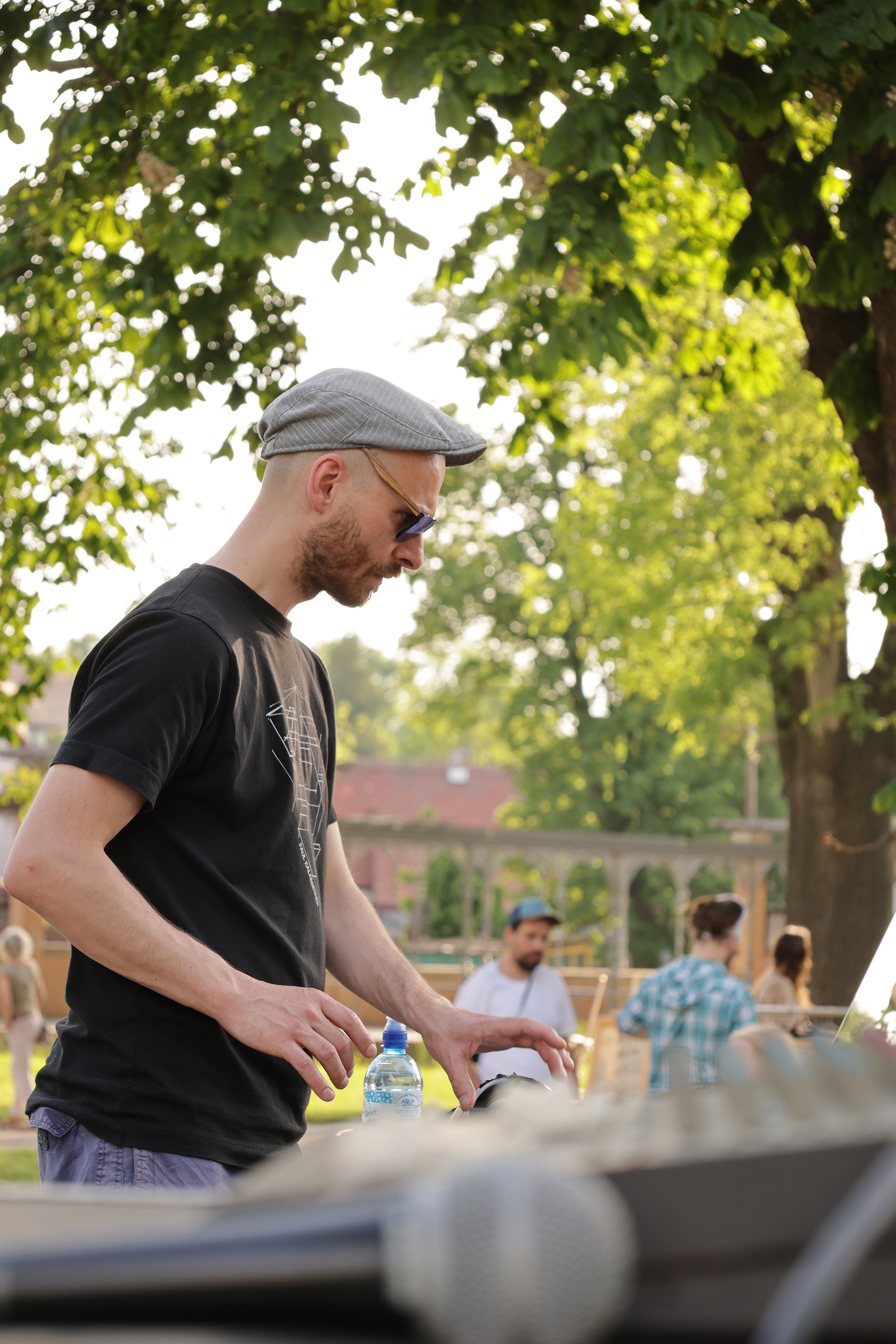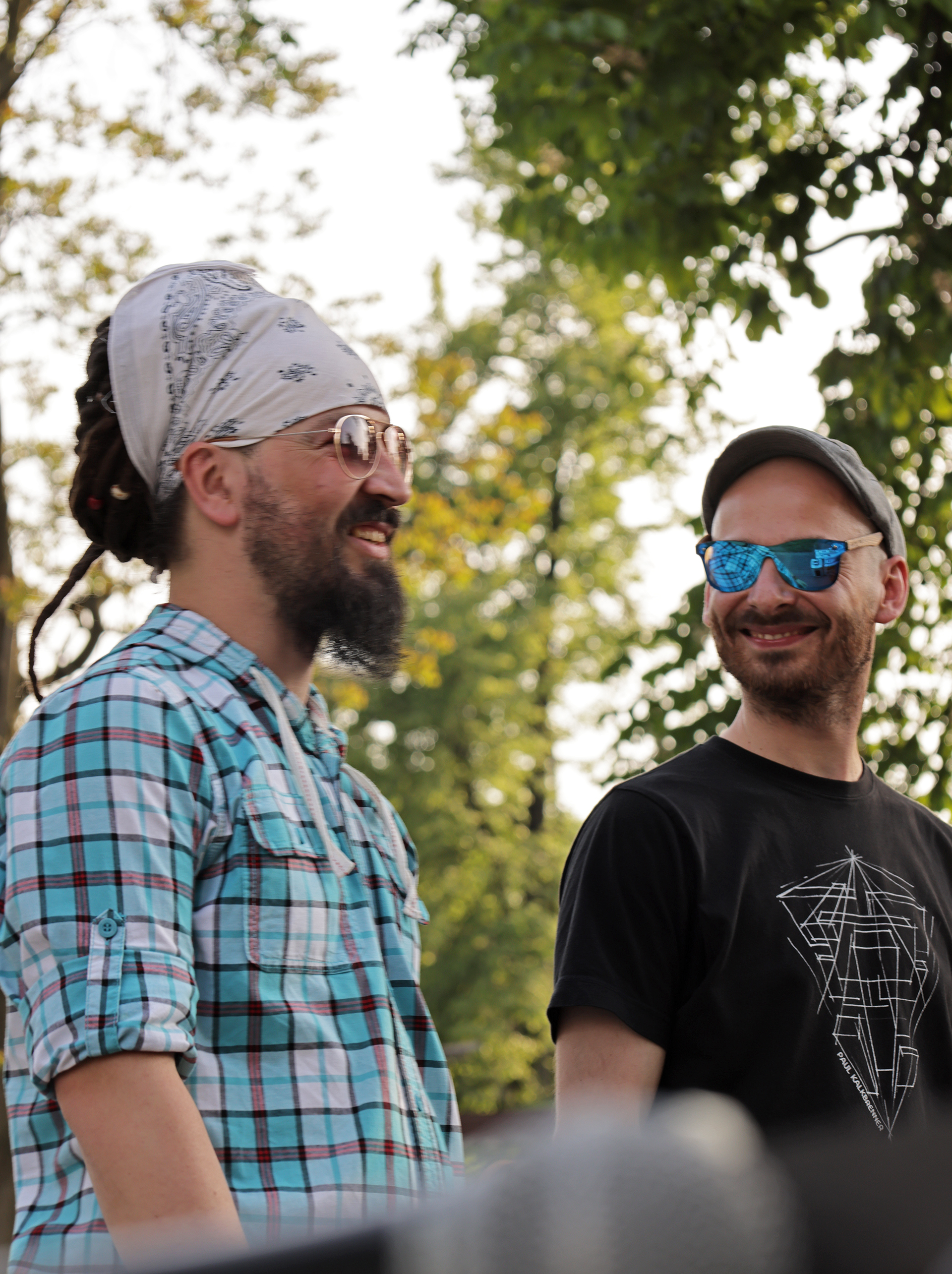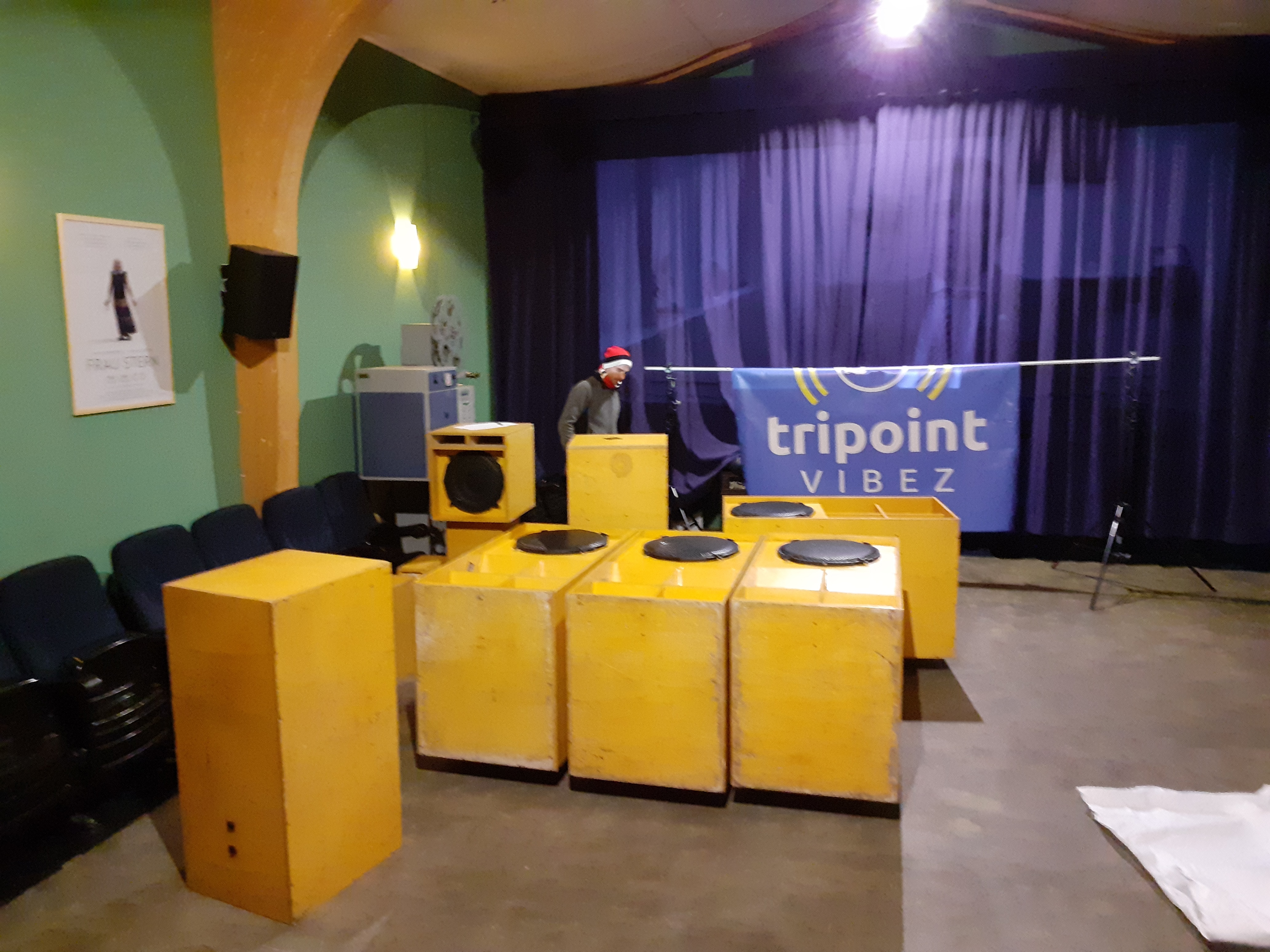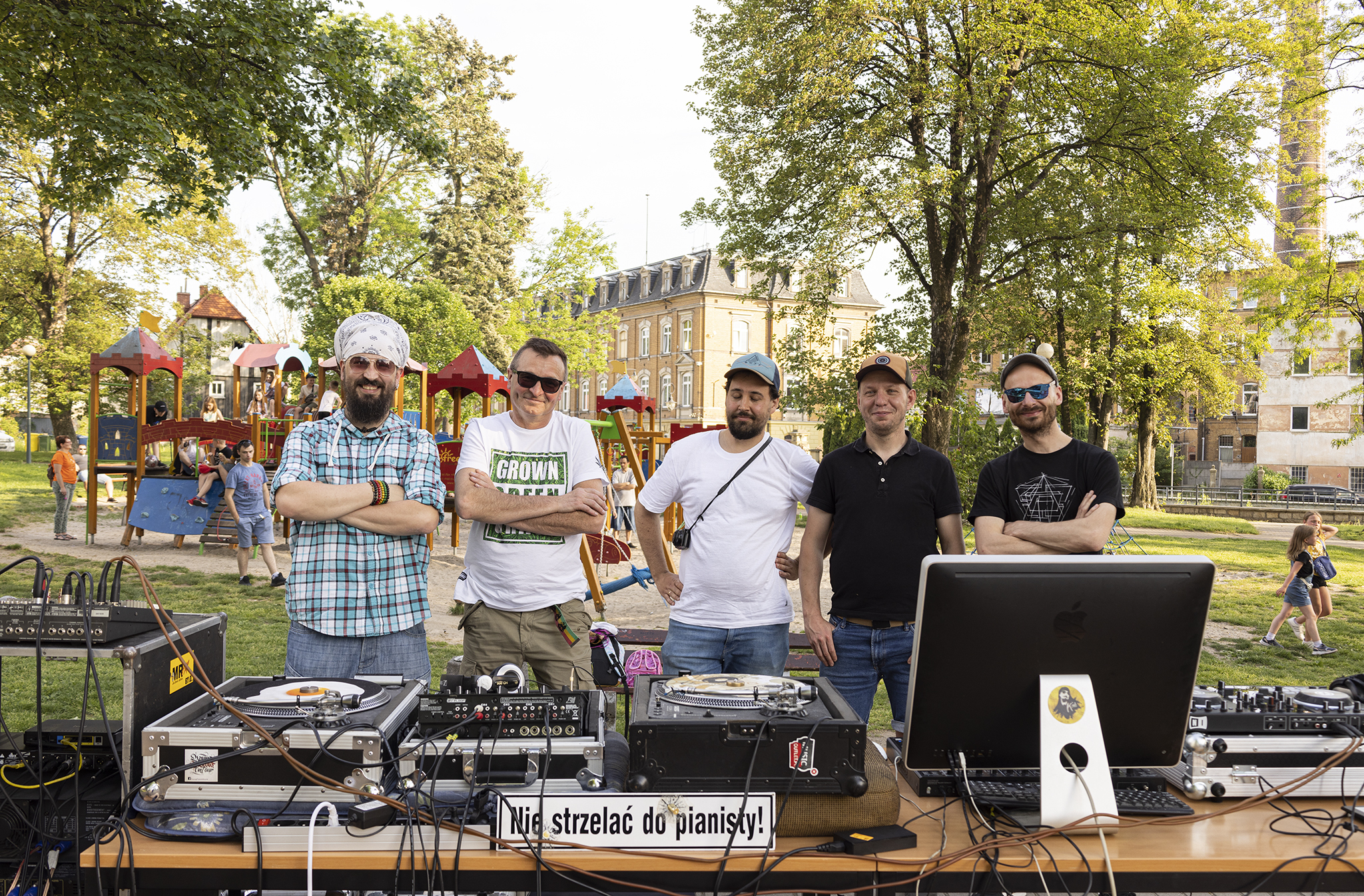
Tripoint Vibez: Dance and Music - The Universal Language That Unites
Tripoint Vibez: Dance and Music - The Universal Language That Unites
Der Kulturinformant
»Innovative dance series unites electronic music enthusiasts in the Tripoint Region. Energetic basslines and electrifying rhythms bring together nationalities regardless of state borders. Grzegorz Dusza, the creator of the project, shares the story of this unique endeavor in the club scene. Forget about discos - Tripoint Vibez is a dance paradise that ushers in a new era, blending traditional values with modern electro sound. An experiential show that will get your blood pumping and connect you with fellow dance enthusiasts.«
Tripoint Vibez: A Mobile Dance Series Specializing in Club Electro Music. The event, which takes place at various locations in the Tripoint region, has been uniting dance and Bass-Dub-Sound enthusiasts since its inception. Nationalities come together, friendships form, transcending state borders. Everyone is welcome. This grassroots, unconventional project has become a flagship initiative for the Tripoint region and its energy. What officials couldn't achieve, Grzegorz Dusza did admirably. Without EU funds or projects.
Magda Kościańska: How did Tripoint Vibez come to be?
Grzegorz Dusza (Tripoint Vibez): I started more than 3 years ago. At that time, I was thinking that not much was happening in the Tripoint region in terms of this music genre, and I wondered if it could be changed. I have my own soundsystem; I've always wanted to play this kind of music and bring it to different communities. At the same time, I wanted to present the Tripoint as a whole, not as something divided into three parts, to showcase entirely new possibilities. I had the idea to work in this area as if it were a single place. So, a group of friends and I decided to give it a try. That's how our first presentation was born in Großhennersdorf, a small village near Zittau, in a small pub where 120 people gathered. That was a signal that the potential was huge, and we had to seize the opportunity.
MK: Was this first event already international?
GD: I try not to use the word "international"; borders are drawn on the map, they are separate countries, but if someone grew up here and lived their whole life between those lines on the map, they realize that these lines are actually only on the map and not between people. For the first edition, the audience came from Bogatynia, Zgorzelec, Prague, Liberec, and the surrounding areas. Many young people were present, which was very promising because it proved that the younger generation is interested in non-mainstream music. From the beginning, it was assumed that it would be an alternative traveling party, a "musical restaurant" initiative. Right from the start, I planned to play in Großhennersdorf, Görlitz, Bogatynia, or Liberec, because the idea was to play on all sides, to engage anyone living nearby, those who want to experience something together. Interestingly, for the second and third presentations, there were people who were already at the first one, people who "stayed" and participated in the following events, and even at the 15th event in a row.

MK: The Tripoint Vibez events are also unique in that you invite everyone, and every description is in 4 languages.
GD: I have always written in four languages because I feel that German, Czech, and Polish are, of course, the main languages spoken in the Tripoint region, but I also take into account that there are people who don't speak some of these languages and would like to come. I try to provide information in a way that everyone can learn as much as possible and benefit from it.
MK: The way you communicate with people feels very natural, no one is ignored, no one is more or less important. Essentially, it looks like it's not clear whether it's a Czech, Polish, or German initiative.
GD: My nationality doesn't matter; I don't brag about it. I'm a resident of the Tripoint region, and this is my small homeland; here, I'm local, a big patriot. It's a natural thing, and I think we're fortunate because there aren't many places like this in the world. Three cultures, three languages, and three borders converge and mix here. All three countries are connected and blended here. It was natural for me to use that and not worry about it.
MK: Who are the guests you invite to Tripoint Vibez?
GD: The first event served to get the public accustomed to this style of play; there were local artists, and recently, I invited a soundsystem from Jablonec, producers from Wrocław and Berlin. In the Tripoint region, things are always colorful. I also always openly write that I invite everyone, whether they come from any part of the Tripoint region, the classic "All tribes welcome."
MK: Has Tripoint Vibez evolved over the years? Has anything changed?
GD: The main motif is Dub-Music, Bass-Music, around Reggae digital but danceable. In this respect, nothing has changed. And what has changed? The scope. If you look at the statistics on social media, depending on the event, up to several thousand people receive information about Tripoint Vibez. I didn't think it was possible to reach so many people just by doing something locally.
MK: What about the people of Tripoint?
GD: It depends on the event because when we change the location, new people come to collaborate. On average, it's 4-5 people without whom the event cannot take place because they are responsible for the technology, sound, and moving speakers. It's a group of people from various parts of the Tripoint region, from everywhere, you could say.


MK: Do you see any divisions or differences among the people who gather at your events?
GD: Not at all. But maybe I've become so accustomed to the diversity here. I'm also not the type of person who looks around and seeks differences. But I love the moments when I see my friends from Liberec in the morning in Wolimierz because we usually sleep there after a soundsystem event, and they are discussing the next meeting with friends from Dresden, Görlitz, or Zgorzelec. To me, that's the best thing Tripoint Vibez can do – creating these contacts, meetings, friendships. These stories start with Tripoint and continue on their own.
MK: Do these stereotypes work within your team and at your events?
GD: If I thought about it, maybe I could find some. I don't think I'm lying when I say there aren't any. It also depends on what questions people ask because if you ask, "What do you think about this or that nationality?" then maybe different examples would come to light. But if you're not asking yourself those questions and you're looking for reconciliatory questions, then it turns out we have more in common than differences, that it brings us together more than it divides us.
MK: So, Tripoint Vibez is an prime example of integrating people from different countries, a grassroots integration. You've created something that institutions, which sometimes try to bring us together forcefully, haven't achieved.
GD: Talking about integration is often more complicated than actually integrating. I don't really like the word "integration"; I try not to use it in the context of our events because it's not necessary. I think that if you create conditions for people to meet and do something together, you don't need to use the word "integration" because even if you don't say it, it happens on its own.
MK: Do you feel at home everywhere in the Tripoint region?
GD: I grew up in Bogatynia. I've been living in Germany for 6 years; I haven't lived in the Czech Republic, but as a child, I spent afternoons at the pool in Kunratice, met good people, and I feel safe in each of these places. It happens that one evening we go to an exhibition opening in Zittau, and two hours later we're in Jablonec for a soundsystem party, all within a 30-minute drive. We have unlimited access to these amazing things. The Tripoint region is one big collection of interconnected centers, whether cultural centers or recreational facilities. I take advantage of that, and I feel at home everywhere.
MK: Tripoint Vibez has another interesting element. The only sponsors are the participants themselves.
GD: Yes, it looks like the typical pooling of resources to pay for the venue, cover formalities, to organize events. We don't cooperate with any institutions, authorities, organizations; we don't want it to be political. We don't want either side to try to pull it to their side. Those are the vibrations of the Tripoint region as they are.
MK: Do your events have any message? Is there something more to it?
GD: There's always a current commentary on the situation; you can't be indifferent to evil. Recently, we invited Ukrainian women who prepared and sold food. At least we could help with something like that. It's important for us to meet, to feel unity with other people, not to face all the problems and questions alone. Equally important is the aspect of fun because dance, as a form of movement, is a means of calming down and dealing with various issues. Let this be Tripoint's message – to meet and face what we're dealing with together...
MK: Do you have a dream place where you want to play?
GD: Of course, the Tripoint itself, as a complement and fulfillment, an area where these three bands of the map intersect. It would be nice to organize a festival there, and if not, maybe we could play there one afternoon.
